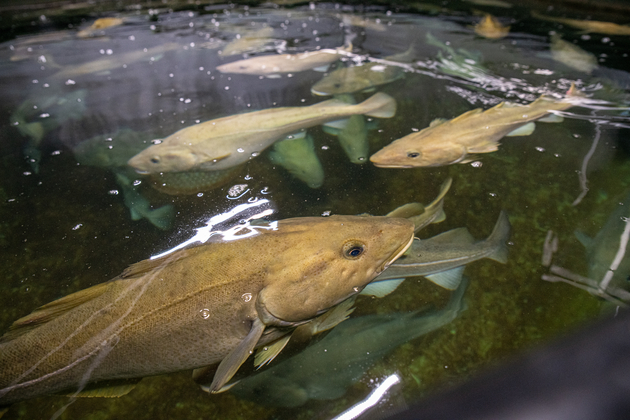Fish nose bacteria may hold clues to marine species survival

In a groundbreaking study, scientists have revealed how climate change might influence the bacterial communities living in fish noses - a previously unexplored frontier that could have implications for fish survival in warming oceans.
The research, which was recently published in FEMS Microbiology Ecology, wasled by a Norwegian and French team of scientists. This study provides the first comprehensive analysis of the nasal microbiota in two marine fish species − European seabass and Atlantic cod – two commercially relevant fish species.
The microbial communities play crucial roles in fish health, affecting everything from their ability to smell food to their immune responses.
“We know that microbiota, such as those in the skin and gut, play a crucial role in maintaining health, but the response of those residing in the nose to environmental changes remains poorly understood. Understanding how these bacterial communities respond to environmental changes is vital as we face increasing ocean warming and acidification,” explains researcher Carlo C. Lazado from Nofima.
“For Norway, this is particularly relevant given the cultural and economic importance of cod fisheries, not to mention the importance of this species in the ecosystem”, he continues.
Surprising results
The study revealed distinct bacterial profiles between the two species, suggesting different environmental adaptations. Seabass, a warm-water species, hosted different bacterial communities compared to cod, a cold-water species.
To study future ocean conditions, the researchers exposed Atlantic cod to various climate change scenarios, including increased temperatures and acidification. The fish were kept in specially designed tanks where the temperature could be raised to 16°C (simulating a marine heatwave), and pH levels could be lowered to match projected ocean acidification.
The different simulated scenarios did not significantly affect the structure of the nasal bacterial communities. However, the researchers caution that this apparent stability might not tell the whole story, as their study covered only a short period. In addition, some limitations on sample size have been acknowledged.
“We need longer-term studies to understand how these bacterial communities are changing to prolonged environmental stress, including the confounding effects of husbandry-related practices,” notes Elisabeth Ytteborg, a co-author of the study.
“This is particularly important for northern Norwegian waters, where we’re seeing some of the fastest rates of change in marine environments.”
The research comes at a critical time when both species face increasing pressure from climate change. European seabass and Atlantic cod support major fisheries across the Northeast Atlantic, with cod fishing being particularly crucial to Norway’s economy and cultural heritage.In Norway, there is also an increasing trend of cod farming. Understanding these microbial communities is relevant for developing preventive measures to keep the farmed cod healthy.
This pioneering work opens new avenues for understanding how climate change might affect marine life through previously unconsidered mechanisms, potentially helping inform future conservation strategies and fisheries management.
The research was conducted through a collaboration between several major marine research institutions, including Nofima (The Norwegian Institute of Food, Fisheries and Aquaculture Research) and IFREMER in France. The work was supported by funding from the Research Council of Norway, Troms and Finnmark County, and the Region Bretagne’s Strategic Attraction program, highlighting strong Nordic-French cooperation in marine science.
Contact persons
Relevant event
Research areas

